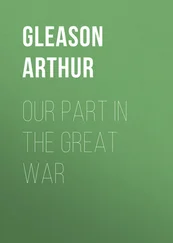Ernest Buley - Glorious Deeds of Australasians in the Great War
Здесь есть возможность читать онлайн «Ernest Buley - Glorious Deeds of Australasians in the Great War» — ознакомительный отрывок электронной книги совершенно бесплатно, а после прочтения отрывка купить полную версию. В некоторых случаях можно слушать аудио, скачать через торрент в формате fb2 и присутствует краткое содержание. Жанр: foreign_antique, foreign_prose, на английском языке. Описание произведения, (предисловие) а так же отзывы посетителей доступны на портале библиотеки ЛибКат.
- Название:Glorious Deeds of Australasians in the Great War
- Автор:
- Жанр:
- Год:неизвестен
- ISBN:нет данных
- Рейтинг книги:4 / 5. Голосов: 1
-
Избранное:Добавить в избранное
- Отзывы:
-
Ваша оценка:
- 80
- 1
- 2
- 3
- 4
- 5
Glorious Deeds of Australasians in the Great War: краткое содержание, описание и аннотация
Предлагаем к чтению аннотацию, описание, краткое содержание или предисловие (зависит от того, что написал сам автор книги «Glorious Deeds of Australasians in the Great War»). Если вы не нашли необходимую информацию о книге — напишите в комментариях, мы постараемся отыскать её.
Glorious Deeds of Australasians in the Great War — читать онлайн ознакомительный отрывок
Ниже представлен текст книги, разбитый по страницам. Система сохранения места последней прочитанной страницы, позволяет с удобством читать онлайн бесплатно книгу «Glorious Deeds of Australasians in the Great War», без необходимости каждый раз заново искать на чём Вы остановились. Поставьте закладку, и сможете в любой момент перейти на страницу, на которой закончили чтение.
Интервал:
Закладка:
All were glad, therefore, for the break in the monotony afforded by the Emden incident; for the whole fleet witnessed the sudden dash of the Sydney at break-neck speed, and shared the glad news flashed by the cruiser by wireless, that reached the convoy some six hours later. The one menace to the safety of the convoy was thus removed, and the remainder of the journey was devoid even of the interest arising out of the possibility of attack. All were correspondingly pleased when they left the transports and entered their Egyptian camps; the Australians at Mena in the shadow of the Pyramids, and the New Zealanders at Heliopolis.
It is doubtful whether the good people of Cairo have quite yet got over the surprise occasioned them by the proceedings of our Australasian army during their first few days in residence in Egypt. The men certainly behaved as no soldiers had ever behaved before, in Egypt's fairly wide experience. They were as unlike the traditional Mr. Atkins of the British regular army – the type to which Cairo has been accustomed – as it is possible for men of the same race to be. They were young men just freed from the restrictions of life on a troopship; many of them had plenty of money to spend; few of them had ever called any man master, or been subject to any will but their own.
Their frame of mind was well understood by those in control of them; and for the first few days a good deal of latitude was allowed the newly-landed Australasians. In those few days the word went round the bazaars that all the Australasians were surely millionaires; and that many of them were many times madder than the mad English. Taxicabs (at two shillings an hour) became unattainable things each evening in Cairo; they were monopolized by Australasian private soldiers seeing the sights.
They went into camp on December 8, at the very height of the Egyptian season. A night or two later, a table was set in the most prominent part of the dining-room of one of Cairo's costliest and most fashionable hotels. The place was crowded, and many visitors sought in vain for seats at dinner; this table was exclusively guarded by an unapproachable waiter, who averred that it had been set aside for a party of most particular gentlemen. Presently these gentlemen arrived, all attired in the uniforms of privates in the Australian army, and to the scandal of some of those present proceeded to enjoy, cheerfully but decorously, the best the house could produce.
One dragoman of Cairo was accosted by an Australian private, who engaged his services, explaining that he wished to buy carpets to send to Australia as presents to his friends there. The dragoman, wishing to overawe him by a display of the unattainable, took him to a merchant who exhibited three carpets as a beginning, one of which cost £100, and the other two £75 each. While the dragoman was explaining to the seller of carpets that his would-be customer was but a private soldier, and only able to buy very cheap goods, the Australian produced the cash for all three carpets, and leaving an address to which they were to be sent, strolled off. This case is but one of many incidents which excited the keen merchants of Egypt, and gave rise to the bazaar talk of the unlimited wealth of these Australians, even those who served in the ranks.
From Cairo to the Pyramids there runs a thin asphalt road, bordered by green irrigation patches and sandy wastes of desert. Each night in those first easy weeks in Egypt, this road was thronged at midnight by all the motley vehicles Cairo could produce, all crammed with happy soldiers returning to camp after a night's fun in the city. Every day the sights of the neighbourhood were visited by scores of curious Australasians; the desire to climb to the top of the great pyramid of Cheops consumed them; no less than seven men fell in attempting it. Four of them were killed outright, and another was maimed for life.
The wisdom of affording them an outlet for their high spirits was apparent when, a week or so after landing, the work of military training began in earnest. One and all, they settled down to the collar like veterans, and soon twenty-mile marches through the heavy sand became a joke, as battalion vied with battalion in breaking records of physical fitness. "Physically, they are the finest lot of men I have ever seen in any part of the world," wrote Mr. Ashmead Bartlett, when they came under his observation at this period in their training. At the end of the year both Australians and New Zealanders were able to show at reviews how much they had already benefited by their training.
The occasion of these reviews was the visit to Egypt of Sir George Reid and the Hon. Thomas McKenzie, the High Commissioners in London for the Commonwealth of Australia and the Dominion of New Zealand respectively. The Australians were reviewed at Mena, and the New Zealanders at Heliopolis; and at both reviews General Sir John Maxwell, the officer commanding his Majesty's troops in Egypt, was present. He asked the High Commissioner to convey to the Commonwealth Government his congratulations upon the superb appearance of the Australians. The New Zealanders, with their continuous lines of six feet men, drew from him the observation, "It would be impossible to obtain better material anywhere."
The men were much pleased with the visits of their London representatives, and cheered them to the echo when they departed. At the review of the Australians, Sir George Reid addressed them in the following inspirited words: —
"Sir John Maxwell, General Birdwood, Mr. Mackenzie, General Bridges, officers, and men, – I am glad to see you all. I am only sorry that I cannot take each of you by the hand of friendship. Many anxious mothers have implored me to look after their sons. Alas! it is impossible; but I rejoice to think that you are under officers who will be true guardians of you throughout the length of this great venture.
"The youngest of these august pyramids was built 2,000 years before Our Saviour was born. They have been silent witnesses to many strange events; but I do not think that they could ever have looked down upon so unique a spectacle as this splendid array of Australian soldiers, massed to defend them. Who can look upon these majestic monuments of antiquity without emotion, without regret? How pathetic, how stupendous, how useless, have been these gigantic efforts to preserve the bodily presence of Egyptian kings from the oblivion to which all mortality is doomed. It is the soul of deeds that lives for ever. Imperishable memories have sprung from nameless graves on land and sea whilst stately sepulchres are dumb. The homes of our Imperial race are scattered far and wide, but the breed remains the same – as staunch, as stalwart, as loyal in the east and west and in our own south as in the northern mother land.
"What brings these forces here? Why do their tents stretch across this narrow parting of the ways between worlds new and old? Are you on a quest in search of gain such as led your fathers to the Australian shore? Are you preparing to invade and outrage weaker nationalities in lawless raids of conquest? Thank God, your mission is as pure and as noble as any soldiers undertook to rid the world of would-be tyrants.
"In this bright climate, beneath these peaceful skies, which tempt so strongly, do not forget the awful ordeal which is near you. Do not forget the fearful risks which you are approaching. Do not forget the desperate battles long drawn out which you must fight and win. Do not forget Lord Kitchener's warning to the soldiers of the Empire. Do not forget the distant homes that love you. Do not forget the fair fame and stainless honour of Australia committed to your keeping. A few bad ones can sully the reputation of a whole army. If such there be in these ranks before me they must be shunned. They must be thrust out. The first and best of all victories you can ever win is the victory of self-control. Hearts of solid oak, nerves of flawless steel come that way.
Читать дальшеИнтервал:
Закладка:
Похожие книги на «Glorious Deeds of Australasians in the Great War»
Представляем Вашему вниманию похожие книги на «Glorious Deeds of Australasians in the Great War» списком для выбора. Мы отобрали схожую по названию и смыслу литературу в надежде предоставить читателям больше вариантов отыскать новые, интересные, ещё непрочитанные произведения.
Обсуждение, отзывы о книге «Glorious Deeds of Australasians in the Great War» и просто собственные мнения читателей. Оставьте ваши комментарии, напишите, что Вы думаете о произведении, его смысле или главных героях. Укажите что конкретно понравилось, а что нет, и почему Вы так считаете.












